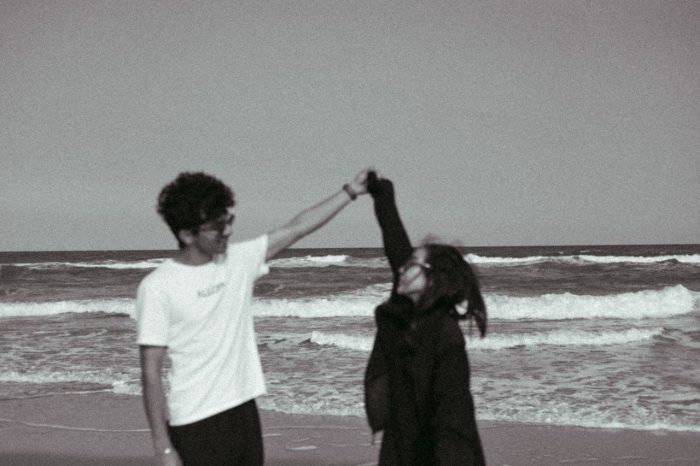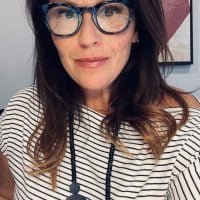Have you ever been confused when someone ghosts you but still watches your social media?
Or maybe you feel stuck on dating apps, even though they rarely lead to meaningful connections?
Perhaps staying single feels like the safer choice than navigating the dating world?
If this resonates, you’re not alone. In my work with many women, I’ve seen these struggles repeatedly, and at the heart of them is one key element: our perception of personal power.
Where Is Our Power in These Situations?
Let’s get real for a moment:
>> Do we share our social media too soon, letting someone into our lives without them earning it?
>> Do we keep using dating apps out of obligation, even though they drain us emotionally without offering much in return?
>> Do we believe deep connections can only come through romantic relationships, but when they don’t work out, we give up entirely?
We might feel that other people are here to fulfill our needs no matter what, or maybe we’ve convinced ourselves that we deserve certain things without fully taking responsibility for our own growth and actions. And when those needs go unmet, it can leave us feeling frustrated and powerless.
Victimhood versus Empowerment
Here’s the hard truth: while our feelings are valid, this mindset leans toward victimhood. The shift from victimhood to empowerment comes from how we view ourselves in relation to our circumstances and the choices we make.
The key to empowerment is self-trust—the belief that we can make choices that align with our values and trust ourselves to handle the outcomes.
The shift from victimhood to empowerment is subtle but incredibly powerful. It’s about how we see ourselves in relation to our circumstances—and the choices we make in response.
Sometimes, remaining a victim can provide a source of validation or sympathy from others. Being in a victim role can evoke compassion from others, and we may unconsciously seek out this attention.
Know there is a deeper need here: it’s about wanting to feel seen, heard, and cared for, especially if we have lacked these things in the past.
But while trying to fulfill these needs through focusing on victimhood can feel comforting in the short term, it doesn’t lead to true healing or empowerment.
The Power of Self-Trust
Women often wonder, “How do I trust men again?”
We’ve all heard that trust is vital in relationships, but what if I told you that the foundation of trust isn’t just about trusting others? The true essence of trust begins with trusting yourself.
It’s only when we trust ourselves that we can truly take control of our lives, make empowered choices, and engage in relationships with clarity and confidence.
Self-trust is the belief that you can navigate life’s challenges, make decisions that align with your values, and handle the outcomes of those decisions. It’s an inner assurance that you can trust your judgment, cope with difficult emotions, and grow from any experience. When you trust yourself, you feel empowered to take responsibility for your life and choices. You no longer wait for external validation or rely on others to tell you what’s best for you—you know you can trust your instincts and abilities. There is a connection you have to your inner world and inner resources.
Self-Trust Means Becoming Our Own Protector
But self-trust isn’t just about inner confidence. It’s also about becoming our own protector. When we trust ourselves, we begin to recognize that we are the ones who are ultimately responsible for our emotional well-being, whether or not we’re in a relationship. This means tending to our feelings and taking care of our heart, especially when others may not be able to meet our needs or validate our emotions.
The truth is we can protect ourselves by creating emotional space for our own healing, and that’s the most empowering thing we can do. As we get in touch with our own emotional needs and boundaries, we’ll begin to realize that dating isn’t as complicated or overwhelming as it once seemed. Our inner compass will guide us toward the decisions that feel right for us—whether that means staying, leaving, opening up, or hanging back to allow space to receive.
Self-Trust Means Setting Boundaries
Trusting ourselves means having the confidence to set clear, loving boundaries. Boundaries aren’t walls that keep people out; they are a means of protecting ourselves and ensuring we are treated with respect and kindness. It means honoring our own needs—even if that means disappointing someone else along the way. And guess what? It’s okay to put ourselves first. We are worthy of having our emotional and mental health be a priority.
Sometimes protecting ourselves means stepping away from situations or relationships that no longer serve us, even if it feels hard in the moment. But remember, setting boundaries isn’t about pushing people away; it’s about making space for those who truly see and respect us for who we are.
Self-Trust Means Speaking Our Truth
Another aspect of self-trust is the courage to speak our truth—no matter how uncomfortable it feels. So often, we women hold back from expressing our feelings in relationships, thinking we’re protecting others or avoiding conflict. But when we keep our voices silent, we deny ourselves the opportunity to be truly seen and heard.
Speaking our truth isn’t just for the other person—it’s for us. It’s about honoring our experiences, our feelings, and our desires. The more we practice speaking our truth, the more we’ll trust ourselves to navigate the ups and downs of dating with authenticity and strength.
When we establish this inner foundation of trust, dating becomes less about seeking approval and more about sharing our authentic selves with someone who can honor that as well.
How Can We Meet This Need Differently?
So, when we look at the dating situations I mentioned earlier, let’s ask ourselves:
>> Where can we protect ourselves more?
>> How can we exercise our personal power by setting clear boundaries and taking aligned action?
>> How can we take ownership of our experiences instead of letting external circumstances or others’ behavior dictate our emotional state?
>> How can we speak our truth more?
>> How can we move from feeling stuck to asking, “Now what?”
Rather than feeling confused or helpless, we have the power to set boundaries around how and when we engage with someone—whether online or in person. We don’t have to engage with someone who isn’t fully showing up for us, and we certainly don’t have to stay in a situation that doesn’t feel right.
We are in control of our own dating journey. We have the ability to take active steps toward the type of connection we’re seeking—or, if we need a break, to step back and focus on other aspects of our lives. Even when hope feels distant, small steps can create a shift. This might look like updating our dating profile, attending social gatherings, or opening ourselves to new ways of connecting.
If we’re not getting the engagement we want, we get to raise our standards—and it’s okay to decide whether dating apps are even the right tool for us. We don’t have to settle for shallow interactions or frustration. We can walk away, reevaluate what we really want, and choose to engage in ways that feel more aligned with our needs.
Life as an Experiment
Remember, trust isn’t found in external things—not in that new romantic partner, not in that new job, not in the things we own.
It’s in our ability to care for ourselves emotionally, no matter what happens outside of us.
Life is an experiment: we try things out, and if they don’t work, we adjust.
When dating doesn’t work, we adjust our approach. Every experience is a chance to learn what we need and give it to ourselves.
The Relationship We Have with Ourselves
As we move forward, let’s deepen our commitment to owning our power by protecting our well-being.
Don’t just practice self-care; be self-caring. Let’s work to listen, see, and tenderly love ourselves.
Let’s work to set boundaries, speak our truth, and walk away when something doesn’t feel right.
The more we lean into our inner strength, the more empowered we’ll feel to be a creator in the kind of relationships we desire.
Ultimately, the best relationships start with the one we have with ourselves.
~












Read 0 comments and reply